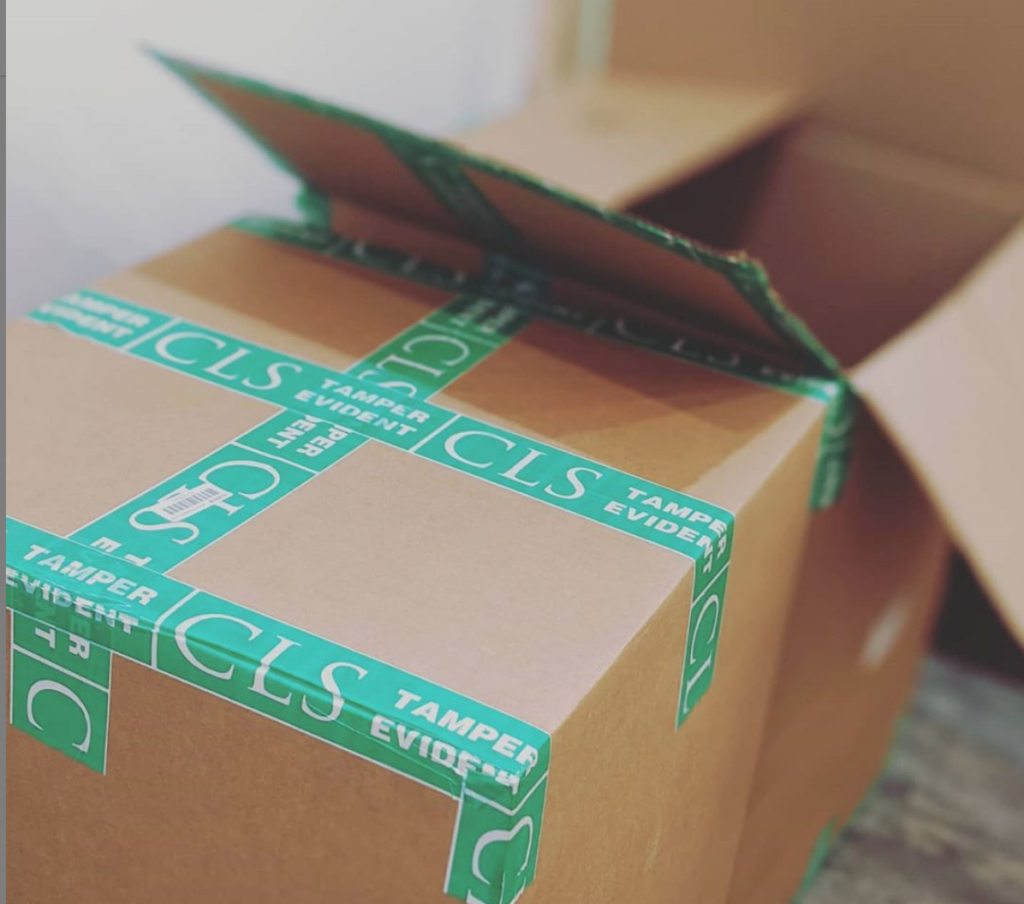
Alberta’s cannabis distributor, the AGLC, says they will not be selling cannabis chocolates online during the summer, due to concerns with products melting in delivery.
The “temporary halt” began on June 29 and will not currently impact any other products. The province says sales of chocolates from their online portal was always expected to be a seasonal offering, but emphasis that these products will still be available through the nearly 500 brick and mortar retailers across the province.
The province also maintains that the issue is not with their own distribution warehouse, managed by contractor Connect Logistics Services Inc. (CLS), but with products that are shipped from their warehouse to consumers, either via Canada Post or Purolator.
Canada Post’s website notes their own distribution warehouses are temperature controlled. But variables outside of the distribution warehouse, like trucks or postal boxes are obviously not as easily controlled. Cannabis chocolates melting can also present more of a problem than other cannabis products, because it can lead to the cannabis that is blended with the chocolate to be less evenly distributed throughout the product, potentially leading to inaccurate dosages for the consumer
“The decision to temporarily halt the sales of edible chocolates on AlbertaCannabis.org affects approximately 27 SKUs of edible chocolates, which can still be found in licensed brick-and-mortar retail locations”
Heather Holmen, Communications Manager for the AGLC
Although no other products currently appear to be affected, there have been industry concerns with other “cannabis 2.0” products like gummies, concentrates, topicals, etc. Some retailers in Alberta, for example, have said some new extracts have arrived with the product melted to the lid due to being shipped upside down. The AGLC says they have not heard reports of any other products melting as of yet.
“There are no concerns with temperature control at the warehouse – the concerns are specific to temperature fluctuations while shipping (in-transit).”
“The decision to temporarily halt the sales of edible chocolates on AlbertaCannabis.org affects approximately 27 SKUs of edible chocolates, which can still be found in licensed brick-and-mortar retail locations,” Heather Holmen, Communications Manager for the AGLC, told Stratcann via email.
“As shipping chocolates during the summer is a challenge due to fluctuations in temperature, which can compromise the product’s quality and stability, we have always planned for edible chocolates to be seasonal.”
“We have had conversations about temperature and storage with all of our provincial partners as part of the selling of our products. Chocolates have the highest melt-risk of any product in our portfolio and we’ve done everything possible to mitigate that risk.”
Adam Greenblatt, Senior Communications Advisor, Canopy Growth
Nigel Prsa, Store Manager for King Street Cannabis in Edmonton, says that the announcement caught them by surprise, and he had not heard any concerns from consumers with any of the products they carry, that they received from the provincial distributor, although the change would not affect any of the products they carry.
“We were kind of taken aback by it when we first heard it,” says Prsa. “We really didn’t get an official statement on why they aren’t shipping it any more. “I haven’t had any consumer feedback on that yet, of anybody saying the product is being destroyed by heat or anything. Not yet at least, but some of the new extracts coming out lately, (consumers) are saying they are getting melted to the glass container they are coming in. The shatter and live resin and things like that.”
Ryan Roch of Lake City Cannabis, just outside Calgary, says of the limited array of edibles they carry, chocolates are the lowest demand, with consumers more consistently asking for gummies than chocolates or other forms of edibles.
He also says a recent shipment his store had received from the AGLC was wrapped in an insulating wrap.
“We’ve never had a problem with chocolates ever, although I guess there could be problems with climate control. But in our most recent shipment, chocolates were packaged in their own box and were wrapped in some sort of protective insulation.”
“(Extracts) is one thing they did not get right in the first go around. The first shipment we had of extracts, the jars were not packed properly, they were actually packed upside down, so the jars were essentially leaking on the lids so I think they may have to come up with alternative methods to ship that, too. But no consumer complaints about chocolates.”

Daffyd Roderick, Director, Communications for the Ontario Cannabis Store says Ontario’s provincial distributor has not had any concerns with any products melting, although it’s something they are also monitoring through several methods, including data loggers being included in shipments from producers.
“Our distribution centre is equipped with temperature moderating equipment, and OCS has a temperature monitoring program to ensure that products, specifically edibles such as chocolates and beverages, as well as topicals, vapes & concentrates, are maintained at the required temperature specified by the licensed producer,” he told StratCann.
Roderick also says Ontario offers delivery options for online sales in air conditioned delivery vehicles, with insulated packaging.
“OCS requires that all temperature-sensitive cannabis products received are accompanied by temperature data loggers. OCS also reviews temperature logs of transportation partners that deliver to our retail partners,” he continues. “We take every precaution in our distribution chain to ensure that we ship all cannabis products under its product specified conditions. Online orders via Domain Express are being delivered in air conditioned vehicles, in tote boxes that are insulated and protected from sunlight.”
“I haven’t had any consumer feedback of anybody saying the product is being destroyed by heat or anything. Not yet at least, but some of the new extracts coming out lately, (consumers) are saying they are getting melted to the glass container they are coming in. The shatter and live resin and things like that.”
Nigel Prsa, Store Manager for King Street Cannabis in Edmonton
A representative for Aurora Cannabis, which has operations in Alberta and offers several cannabis chocolate products in Alberta as well as other provinces, says the company doesn’t expect the change will impact sales of chocolates, especially because of the large number of retail stores in the province who will still be carrying those products.
“Our team was made aware of the temporary change to Alberta’s e-commerce distribution of cannabis chocolate products in advance,” says Cristina Hogue, VP Consumer Sales at Aurora, “and we expect limited impact to consumer access given the robust brick-and-mortar retail footprint in the province.
“We will continue to collaborate with our provincial partners to enable consumers across the country to safely enjoy our diverse product portfolio.”

Ray Gracewood Senior Vice President, Marketing & Communications Organigram Inc. who manufactures several cannabis chocolates sold in Alberta, says they were aware of the policy announcement and something they have had time to monitor on their end, as well.
“We had discussions with AGLC leading into their decision and it has also been an issue we’ve been monitoring through our medical business,” Gracewood told StratCann via email. “We conduct shipping checks on all products, including chocolate. This replicates the consumer experience through various shipping carriers and locations to ensure our primary and secondary packaging solutions provide the optimal protection for product during shipment. We also work directly with partners throughout the supply chain such as wholesalers and retailers to discuss process optimizations as the industry develops.”
As others note, Gracewood also says he thinks Alberta’s significant retail footprint means the temporary halt of online sales of chocolates will not have any major effects on sales.
“Considering the overall size of the market currently, it would be cost-prohibitive to manage the chocolate category differently from a supply chain perspective considering Alberta’s relative strength in retail distribution,” says Gracewood. “At the end of the day, we want to ensure consumers get the best experience from our products. We will continue to monitor and assume that the weather will be less of a factor in the fall and AGLC will once again offer chocolate based infused cannabis products through their online channel.”
“We had discussions with AGLC leading into their decision and it has also been an issue we’ve been monitoring through our medical business. We conduct shipping checks on all products, including chocolate. This replicates the consumer experience through various shipping carriers and locations to ensure our primary and secondary packaging solutions provide the optimal protection for product during shipment.”
Ray Gracewood Senior Vice President, Marketing & Communications Organigram Inc.
Adam Greenblatt, a Senior Communications Advisor with Canopy Growth Corporation also says they were aware of the temporary halt from Alberta, and notes that Canopy has preemptively taken steps to ensure products are shipped via temperature-controlled methods.
“Temperature control is part of our logistics plan for all SKUs,” Greenblatt told StratCann. “The Canopy Growth distribution centre is climate-controlled and we ship all of our products to provincial distributors in climate-controlled Brinks trucks. Additionally, our chocolates are packed in a fitted sealed tray to ensure that in the event it does melt, it would reform easily once back in a cooler environment.”
“We have had conversations about temperature and storage with all of our provincial partners as part of the selling of our products,” continues Greenblatt. “AGLC is the first to halt shipment of chocolates via e-commerce during the summer months, but chocolates will continue to be available in stores. Chocolates have the highest melt-risk of any product in our portfolio and we’ve done everything possible to mitigate that risk.”
Featured image via cbc.ca

































